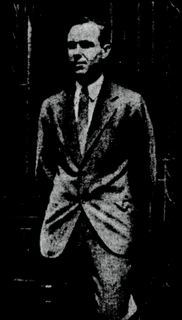A Quote by Lord Chesterfield
Study the heart and the mind of man, and begin with your own. Meditation and reflection must lay the foundation of that knowledge, but experience and practice must, and alone can, complete it.
Quote Topics
Related Quotes
If you intend to study the mind, you must have systematic training; you must practice to bring the mind under your control, to attain to that consciousness from which you will be able to study the mind and remain unmoved by any of its wild gyrations. Otherwise the facts observed will not be reliable; they will not apply to all people and therefore will not be truly facts or data at all.
Knowledge is inherent in man; no knowledge comes from outside; it is all inside. We say Newton discovered gravitation. Was it sitting anywhere waiting for him? It was in his own mind; the time came and he found it out. All knowledge that the world has ever received comes from the mind; the infinite library of the universe is in our own mind. The external world is simply the suggestion, the occasion, which sets you to study your own mind.
In Buddhism, both learning and practice are extremely important, and they must go hand in hand. Without knowledge, just to rely on faith, faith, and more faith is good but not sufficient. So the intellectual part must definitely be present. At the same time, strictly intellectual development without faith and practice, is also of no use. It is necessary to combine knowledge born from study with sincere practice in our daily lives. These two must go together.
All spiritual growth comes from reading and reflection. By reading we learn what we did not know; by reflection we retain what we have learned. The conscientious reader will be more concerned to carry out what he has read than merely to acquire knowledge of it. In reading we aim at knowing, but we must put into practice what we have learned in our course of study.
WISDOM IS dependent upon knowledge. Where there is complete ignorance there can be no wisdom, no knowledge of the right thing to do. Man’s knowledge is comparatively limited and so his wisdom must be small, unless he can connect his mind with a knowledge greater than his own and draw from it, by inspiration, the wisdom that his own limitations deny him. Only God knows all truth; therefore only God can have Real wisdom or know the right thing to do at all times, and man can receive wisdom from God. Wisdom is obtained by reading the mind of God.
If abuses are destroyed, man must destroy them. If slaves are freed, man must free them. If new truths are discovered, man must discover them. If the naked are clothed; if the hungry are fed; if justice is done; if labor is rewarded; if superstition is driven from the mind; if the defenseless are protected, and if the right finally triumphs, all must be the work of man. The grand victories of the future must be won by man, and by man alone.
For the Humanist, . . . head and heart . . . must function together. . . . The constitution of the Phillips Exeter Academy reads: 'Though goodness without knowledge . . . is weak and feeble, yet knowledge without goodness is dangerous. . . . Both united form the noblest character and lay the surest foundation of usefulness to mankind.'
The soil in which the meditative mind can begin is the soil of everyday life, the strife, the pain, and the fleeting joy. It must begin there, and bring order, and from there move endlessly. .. You must take a plunge into the water, not knowing how to swim. And the beauty of meditation is that you never know where you are, where you are going, what the end is.
Everybody allows that to know any other science you must have first studied it, and that you can only claim to express a judgment upon it in virtue of such knowledge. Everybody allows that to make a shoe you must have learned and practised the craft of the shoemaker, though every man has a model in his own foot, and possesses in his hands the natural endowments for the operations required. For philosophy alone, it seems to be imagined, such study, care, and application are not in the least requisite
































